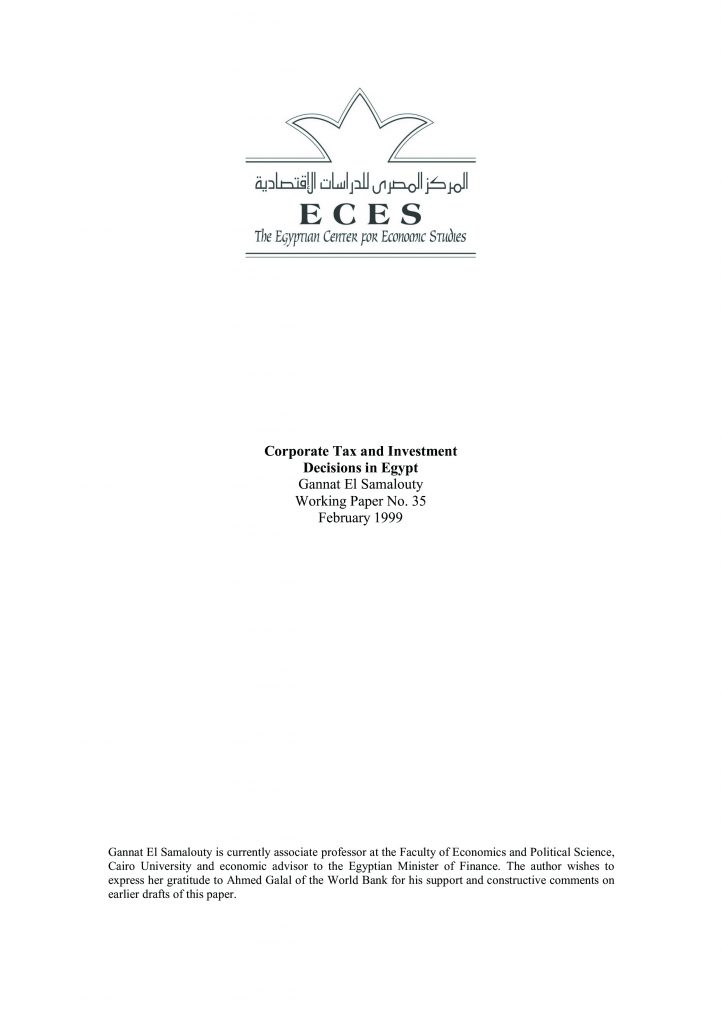Abstract:
It is widely acknowledged that Egypt’s stabilization program has been highly successful. Stabilization, albeit necessary, is not sufficient to accelerate growth. Egypt needs to foster greater investment (including foreign direct investment) to achieve the envisaged high-growth scenario. While the tax burden is only a part of the investment climate, it plays a crucial role in determining investment decisions. Moreover, the recent trends of increased globalization place new and greater demands on the national tax regimes to secure a country’s tax competitiveness. The paper argues that in spite of recent tax reforms, the Egyptian tax system still undermines the efficiency and growth consideration of a good tax system. Due to high and numerous tax rates applied to a narrow base, as well as tax holidays of different duration granted to certain activities and not to others, the tax structure can be accountable for: deterring the level of investment, creating serious distortions, and leading to a large erosion in government revenues. If corporate taxation is to be reformed for growth and competitiveness, the reform agenda should include lowering corporate tax rate uniformly, along with other tax base and tax law provision changes. In parallel, the upgrading of Egypt tax incentive policy in terms of efficiency and effectiveness is also a must.

